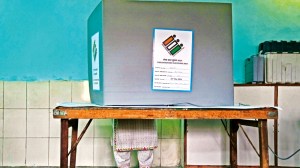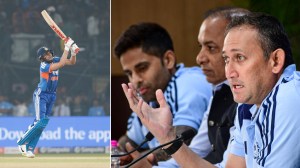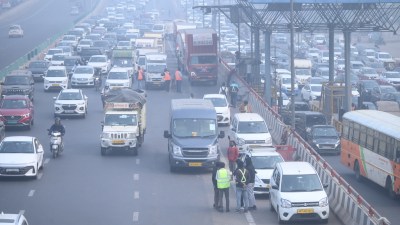Click here to join Express Pune WhatsApp channel and get a curated list of our stories
Over 23% schools in Maharashtra don’t have functional computers, says data
The UDISE+ data released in August also shows that across India, overall only 57.9 per cent of schools have functional computers, and state-wise variations are large.
 In Kerala, almost all schools (15,618 out of 15,757) have functional computers. (representational image)
In Kerala, almost all schools (15,618 out of 15,757) have functional computers. (representational image)Over 23 per cent schools in Maharashtra do not have any functioning computers, according to Unified District Information System for Education plus (UDISE+) data for 2024-25. Out of the 1,08,250 schools in the state, 25,258 do not have functional computers on their premises. Further, of the total 1.8 lakh schools in the state, 30,166 do not have an internet connection. This figure includes all schools like government, government-aided and private schools.
The UDISE+ data released in August also shows that across India, overall only 57.9 per cent of schools have functional computers, and state-wise variations are large. In Kerala, almost all schools (15,618 out of 15,757) have functional computers. In Tamil Nadu, 53,080 out of 57,936, or 91.6 per cent schools have functional computers. Karnataka, however, fares worse than Maharashtra with only 50 per cent of the total schools having computers. Similarly in Uttar Pradesh, only 51 per cent schools have computer facilities.
In October, The Indian Express reported on the story of Aditi Parthe, a Class 7 student at Nigudghar Zila Parishad (ZP) School in Bhor Taluka, who was selected for the Pune ZP’s NASA tour programme after clearing three rounds of tests. Her school did not have any functioning computers, and she was taught how to operate one by headmaster Ashok Bandal using his personal computer.
IAS officer Sanjay Yadav, State Project Director of Samagra Shiksha at Maharashtra Prathmik Shikshan Parishad, told The Indian Express that many of the state’s schools that don’t have computers are smaller schools with few students. He said, “We don’t close schools even where the children are few in number. We have schools with one or two or 10 students, and these are younger kids. The schools without computers are possibly these schools.”
“Wherever there are more than 50 students, an attempt is made so that they get exposure to computers. It is the government’s responsibility to provide these facilities and we are trying, but we are now also trying to get CSR (corporate social responsibility) funds to these smaller schools,” he added.
Yadav said, “It is difficult to maintain 100 per cent computers in schools where even trained manpower might not be available. We have some schools with just one teacher. There are two options (to solve this): one that the students can go to the computer labs, or that mobile computer labs can be sent to the students for introduction. We are planning to have 100 per cent exposure to computers by the next academic year. It is not necessary for computers to be present in each school, I just thought of mobile labs while having this conversation.”
Click here to join Express Pune WhatsApp channel and get a curated list of our stories








